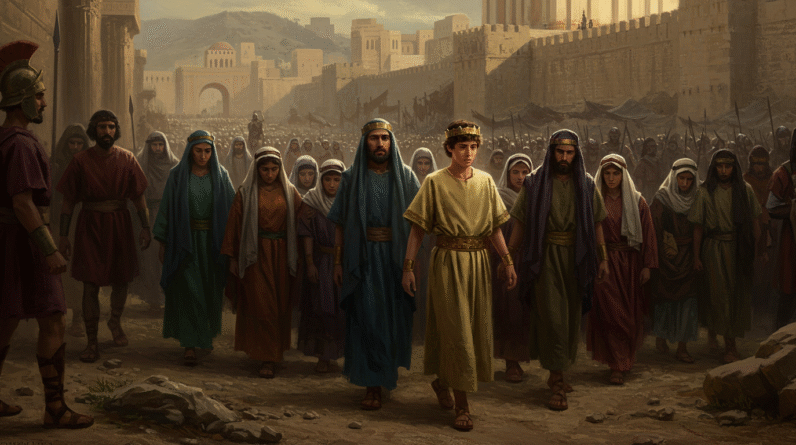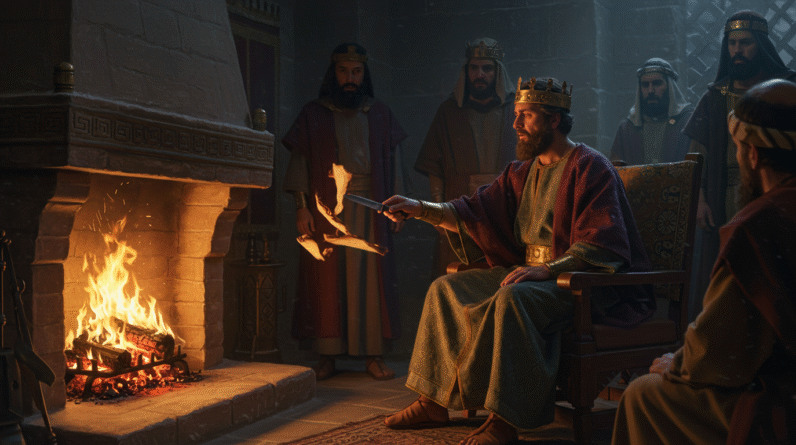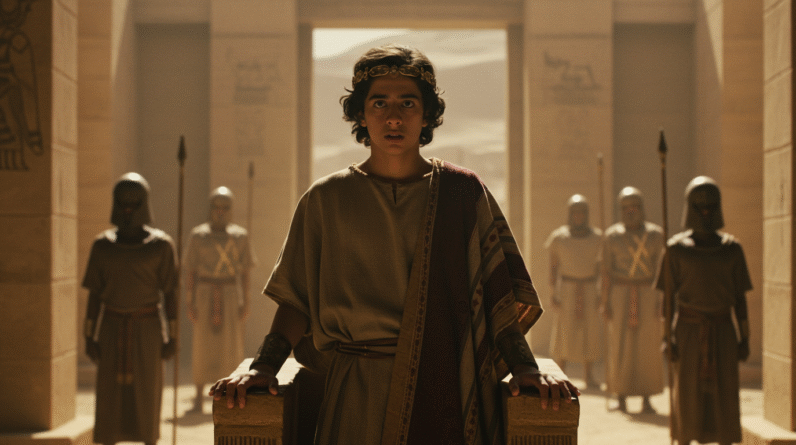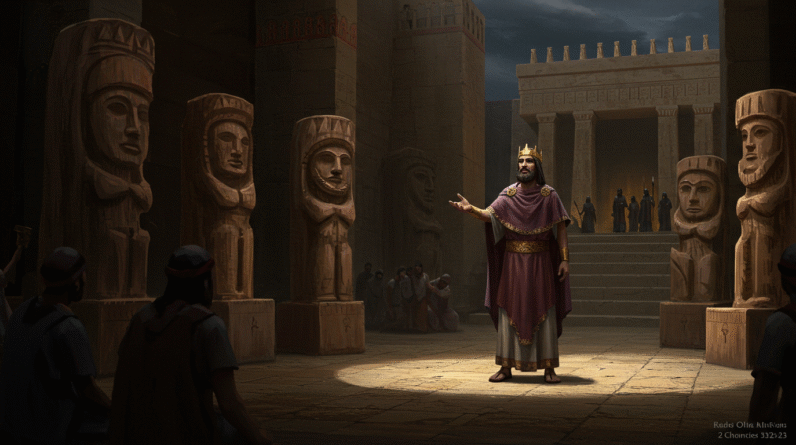King Josiah’s Radical Reforms: Tearing Down Idols and Restoring True Worship
Hey there! Today, let’s dive into an intriguing tale from ancient times that exudes courage, determination, and a quest for true worship. We’re talking about King Josiah, a young king who embarked on radical reforms to overturn idolatry in his kingdom and restore a purer form of worship. King Josiah’s story may sound like something out of a fantasy novel, but it truly happened, and it offers wisdom and insight we can still draw from today.
The Rise of King Josiah: A Brief Background
Before we talk about King Josiah’s achievements, it’s important to understand the backdrop of his rise to power. Josiah became king of Judah when he was just eight years old after the assassination of his father, King Amon. Despite the chaos, Josiah’s ascent marked a pivotal turning point for Judah at a time when idol worship was rampant. Over the years, numerous kings had tolerated or even promoted the worship of foreign gods, and the land was dotted with high places and idols.
The Spiritual State of Judah Before Josiah’s Reforms
The spiritual climate in Judah before King Josiah’s reforms was quite grim. The people had largely turned away from the worship of Yahweh and had embraced various forms of idol worship. From offering sacrifices to Baal to revering Asherah poles, the landscape of Judah was replete with symbols of these practices.
The complexity of this idolatry wasn’t just the worship itself but how intertwined it had become with the social and political fabric of the kingdom. High places, typically elevated sites dedicated to worshiping these deities, had become central to religious life. The implications of these practices were deep, affecting not just religious worship but also ethical conduct and societal norms.
Josiah’s Courageous Acts Against Idolatry
One of the most striking aspects of King Josiah’s reign was his boldness in confronting the entrenched idol worship in Judah. You see, where many of his predecessors either ignored or partook in them, Josiah felt a pull towards reform—a pull that came from a set of principles rooted in the ancient laws of his forefathers.
Tearing Down the High Places
Josiah’s first steps involved addressing the high places, which were central to idolatrous practices. He didn’t just order their closure; he actively participated in their destruction. It wasn’t a task for the faint-hearted. 2 Kings 23:13 details his efforts, describing how he desecrated the sites dedicated to gods like Ashtoreth and Chemosh. Josiah’s actions against these high places were as much symbolic as they were practical, signifying a wholesale rejection of idolatry and a return to the worship of Yahweh.
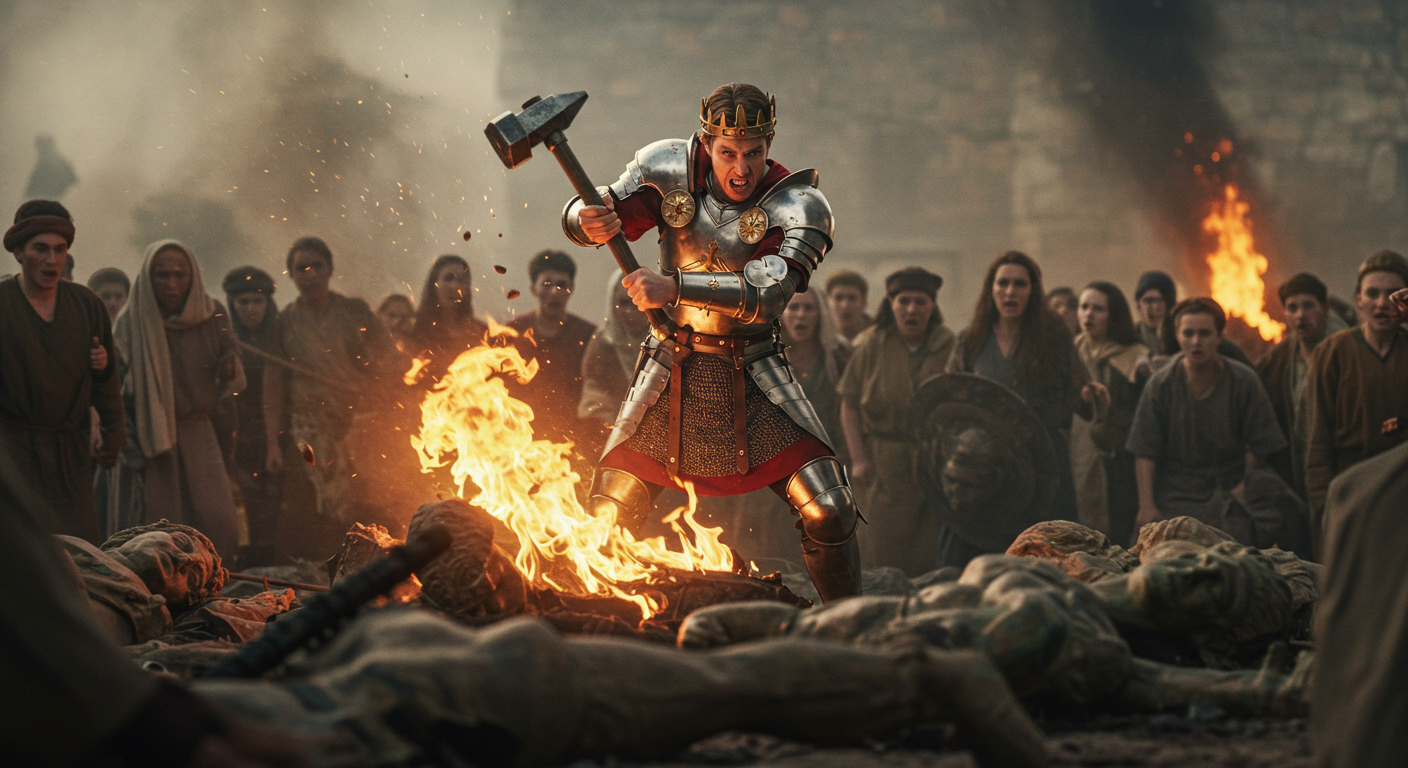
Smashing the Asherah Poles
In addition to tackling the high places, King Josiah also targeted Asherah poles, which were wooden symbols representing the Canaanite goddess Asherah. These poles were widespread and represented serious obstacles to monotheistic worship. 2 Kings 23:14 recounts Josiah’s order to cut down and pulverize these symbols, scattering the remains on graves to signify their utter demise. His aggressive approach shows his determination to rid Judah of all traces of false worship, a move that required immense personal resolve.
Elimination of False Priests
The presence of corrupt religious leaders further compounded Judah’s problems. The priests who managed these high places were deeply rooted in their communities and wielded significant influence. Josiah understood that to achieve lasting reform, he needed to expel these spiritual authorities who had led the people astray.
Confronting the Priests
King Josiah demolished the structures that housed the false priests’ activities and burned their bones on their altars to ensure their eternal disgrace, as noted in 2 Kings 23:20. This action wasn’t merely punitive; it was a public statement about apostasy’s gravity. By cleansing the priesthood, Josiah sought to purify the nation and restore a priesthood committed to Yahweh’s statutes.
Reestablishing Legitimate Worship
After eradicating the false priests and pagan sites, Josiah focused on revitalizing legitimate worship practices. He reinstated the worship in temple ceremonies that followed the commandments given to Moses. Along with his political power, Josiah acted as a religious reformer who strived to rekindle the nation’s spiritual fervor.
Centralizing Worship in Jerusalem
Having purged Judah of widespread idolatry, King Josiah turned his attention to centralizing worship in the capital city, Jerusalem. This move aimed to unify the nation’s spiritual practices and bring worship in line with the requirements found in the ancient texts.
The Law’s Command for Centralized Worship
According to the Law, worship was to be centralized at the temple in Jerusalem. This was not merely an issue of geography but a theological principle intended to ensure monotheistic worship. King Josiah rediscovered the Book of the Law in the temple, a discovery attributed to the high priest Hilkiah, which further galvanized this push for centralized worship. 2 Kings 22:8-11 captures the moment of this critical discovery, revealing Josiah’s mournful reaction. The words of the scroll served as both an indictment of past failings and a blueprint for future reforms.
Celebrating the Passover
In perhaps one of his most significant religious reforms, King Josiah reinstated the Passover, a critical feast that had not been celebrated according to its proper prescription for many years. 2 Kings 23:21-23 emphasizes how this event unified the nation under a shared spiritual identity, renewing their covenant with Yahweh.
The True Legacy of King Josiah
As we reflect on King Josiah’s life and reign, it’s impossible not to marvel at the courage, determination, and faith that propelled him to undertake such comprehensive reforms. His actions laid the groundwork for a nation seeking to align itself with ancient covenants. While his reign was tragically cut short, the impact of his reforms carried ripples that influenced generations.
Why King Josiah’s Story Matters Today
So, why dive into the life of a king who reigned thousands of years ago? What can King Josiah’s radical reforms and determination teach us in the modern world? The core of his story is about the pursuit of authenticity, integrity, and the courage to stand up against norms that compromise true purpose and belief. In Josiah’s story, we find an enduring lesson about the importance of courageously advocating for truth and integrity in the face of adversity.
Applying Josiah’s Reforms in the Modern Context
In a modern context, King Josiah’s reforms beckon us to examine our own “high places” and “Asherah poles,” metaphorically speaking. What are the distractions or false idols in our lives that need tearing down? Are there assumptions, beliefs, or habits that prevent us from living a life aligned with our deepest values? Recognizing and addressing these is the first step toward leading a life of integrity and purpose.
The Call to Action: Becoming Modern Reformers
King Josiah’s life calls us to become reformers in our own spheres of influence, advocating for authenticity and sincerity wherever we find ourselves. Whether in personal relationships, workplaces, or communities, there is an ongoing need for people to embody these principles in meaningful ways. As we all navigate the complexities of modern life, Josiah’s story stands as an inspiring reminder that change is not only possible but necessary.
Conclusion
King Josiah’s radical reforms were not just about physical and structural change but were deeply spiritual and personal. They were about reconciling a nation with its values and identity. His story continues to resonate today, inviting each of us to evaluate our own path and make necessary changes that reflect our beliefs and aspirations.
Explore More
For further reading and encouragement, check out these posts:
👉 7 Bible Verses About Faith in Hard Times
👉 Job’s Faith: What We Can Learn From His Trials
👉 How To Trust God When Everything Falls Apart
👉 Why God Allows Suffering – A Biblical Perspective
👉 Faith Over Fear: How To Stand Strong In Uncertain Seasons
👉 How To Encourage Someone Struggling With Their Faith
👉 5 Prayers for Strength When You’re Feeling Weak

📘 Jesus and the Woman Caught in Adultery – Grace and Mercy Over Judgement
A powerful retelling of John 8:1-11. This book brings to life the depth of forgiveness, mercy, and God’s unwavering love.
👉 Check it now on Amazon
As a ClickBank Affiliate, I earn from qualifying purchases.
Acknowledgment: All Bible verses referenced in this article were accessed via Bible Gateway (or Bible Hub).
“Want to explore more? Check out our latest post on Why Jesus? and discover the life-changing truth of the Gospel!”




